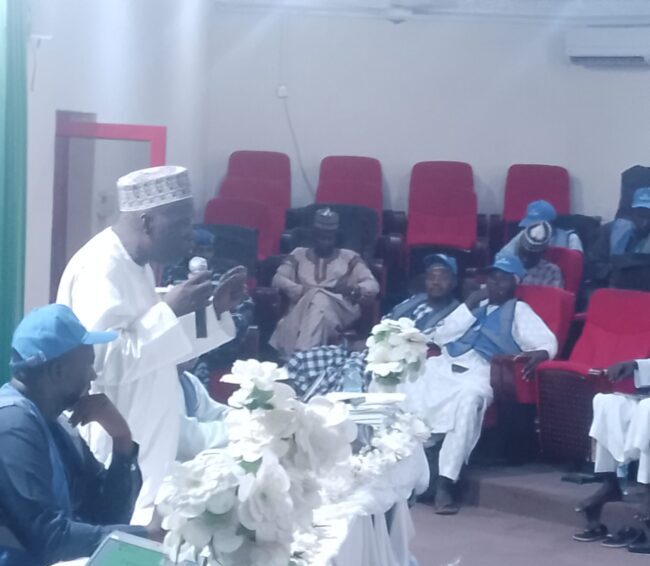The Jigawa State Government has earmarked over N12.5 billion for free dialysis and the treatment of non-communicable diseases such as sickle cell anaemia, hypertension, and diabetes across the state.
This was disclosed by the State Commissioner of Health, Dr Abdullahi Kainuwa, in a speech delivered at a three-day training on health monitoring for Senior Special Assistants (SSAs) and Special Assistants (SAs) to the Governor. He said the funds would also be used for the construction, renovation, and upgrading of both secondary and primary healthcare facilities to ensure 24/7 healthcare services statewide.
Dr. Kainuwa explained that the budget covers the construction, expansion, and renovation of new and existing healthcare hospitals across the 27 local government areas and 287 political wards in the state.
He added, “Under the project, staff quarters, adequate water supply, 24-hour power supply, and modern latrines will be provided at all the hospitals.”
According to him, “This is part of the efforts of the Malam Umar Namadi-led administration to ensure efficient and effective healthcare delivery services to the people. We aim to succeed in implementing the Jigawa State Basic Healthcare Services for vulnerable populations, with 143,500 beneficiaries in the state.”
He further stated that the provision of quality, free healthcare services to Jigawa citizens is part of Governor Namadi’s 12-point agenda, which he presented before being elected into office.
The health commissioner also announced the establishment of dialysis centres in each of the five emirate headquarters as part of the government’s effort to provide free dialysis services. He noted that construction has been completed in the Hadejia, Gumel, and Dutse Emirates, while dialysis machines and necessary materials are currently being installed in Kazaure and Ringim Emirates.
Dr. Kainuwa revealed the government’s plan to recruit 1,924 medical personnel, in addition to the over 1,000 healthcare workers employed in the second quarter of this year.
He stated, “I wish to inform you that the three Nurses and Midwives Institutes have received full accreditation for their programmes, and we aim to produce at least 720 nurses and midwives annually. You are also aware of the state’s indigenes studying medicine in Cyprus, all of which is part of our efforts to ensure that we have enough qualified personnel in all our hospitals.”
The Commissioner of Health, Dr Abdullahi Kainuwa, urged participants to make the most of the training opportunity to gain the necessary knowledge for effective health monitoring and supervision of staff and facilities.
He emphasized the importance of reporting to the appropriate offices to ensure the governor is informed for timely actions.
“I charge you to be dedicated and committed to ensuring the success of Governor Malam Umar Namadi’s government. You were all appointed for a purpose based on merit. Please give your best for efficient, sufficient, effective, and timely services to help the government achieve its desired objectives.”
In his remarks, the Technical Adviser to the Governor on Healthcare, Mr Isah Surajo, highlighted that the training was organised to equip 81 Senior Special Assistants (SSAs) and Special Assistants (SAs) with the skills and knowledge necessary for health monitoring.
Mr. Surajo explained, “The purpose of this training workshop is to enhance their capacity on health monitoring, strengthening their ability to deliver quality healthcare services at various service delivery points.”
He further noted that participants were selected from all 27 local government areas, with three representatives from each. Their responsibilities include overseeing, supervising, and monitoring how government resources are utilised in health facilities. They will also engage with communities to ensure healthcare services are improved and address issues at the community level. Additionally, they are tasked with ensuring that grievance mechanisms are functional in all health facilities.
“They are responsible for reporting to senior special assistants in their respective areas so that the reports can be collected and analysed. Issues that cannot be resolved at the facility level will be escalated to the local government, and those above that level will be forwarded to the state level for appropriate action,” Mr Surajo concluded.
Dr Abdullahi Kainuwa emphasised that, “This orientation will provide them with a comprehensive understanding of how health centres operate, who is responsible for what, and what is expected at each level. It will also clarify which services are rights, which are privileges, and who to contact when issues arise.”
He further explained, “The training will also create an enabling environment for them to understand the health policies, plans, and regulatory practices in the health facilities. Additionally, they will be trained on capacity enhancement using digital platforms to perform their assignments and responsibilities more effectively.”
ALSO READ THESE TOP STORIES FROM NIGERIAN TRIBUNE




